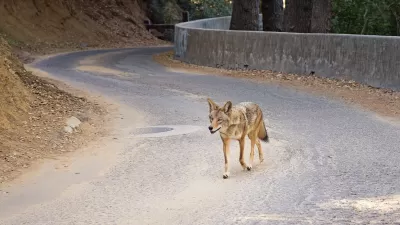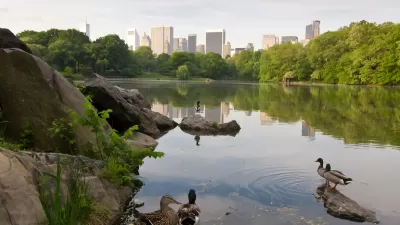Welcome to a post-human era of biological evolution. Strap on your seat belts.

Menno Schilthuizen writes a story of the incredible intersection between built and natural, as seen in the quickening pace of evolution among species living in urban settings.
"For a long time, biologists thought evolution was a very, very slow process, too tardy to be observed in a human lifetime," explains Schilthuizen. "But recently, we have come to understand that evolution can happen very quickly, as long as natural selection — the relative benefit that a particular characteristic bestows on its bearer — is strong."
The city, in its many manifestations, serves as the perfect testing ground, according to Schilthuizen. Now evolutionary biologists are focusing their work in cities, not faraway jungles and other extreme natural environments.
On a final, significant theme, there could be unpredictable evolutionary consequences as cities expand around the world. According to Schilthuizen, "as cities continue to grow, they will exchange more goods, people and information over greater distances. So each change in the environment (a particular pollutant, a certain novelty in road construction, a new kind of food source) will spread quickly across the world, and urban wildlife everywhere will be faced with the same novel challenge. Those that evolve adaptations will also easily spread to other cities, leading to a truly globalized urban flora and fauna — continually evolving at breakneck speed to keep up with an increasingly human-dominated world."
FULL STORY: Evolution Is Happening Faster Than We Thought

Maui's Vacation Rental Debate Turns Ugly
Verbal attacks, misinformation campaigns and fistfights plague a high-stakes debate to convert thousands of vacation rentals into long-term housing.

Planetizen Federal Action Tracker
A weekly monitor of how Trump’s orders and actions are impacting planners and planning in America.

Chicago’s Ghost Rails
Just beneath the surface of the modern city lie the remnants of its expansive early 20th-century streetcar system.

Bend, Oregon Zoning Reforms Prioritize Small-Scale Housing
The city altered its zoning code to allow multi-family housing and eliminated parking mandates citywide.

Amtrak Cutting Jobs, Funding to High-Speed Rail
The agency plans to cut 10 percent of its workforce and has confirmed it will not fund new high-speed rail projects.

LA Denies Basic Services to Unhoused Residents
The city has repeatedly failed to respond to requests for trash pickup at encampment sites, and eliminated a program that provided mobile showers and toilets.
Urban Design for Planners 1: Software Tools
This six-course series explores essential urban design concepts using open source software and equips planners with the tools they need to participate fully in the urban design process.
Planning for Universal Design
Learn the tools for implementing Universal Design in planning regulations.
planning NEXT
Appalachian Highlands Housing Partners
Mpact (founded as Rail~Volution)
City of Camden Redevelopment Agency
City of Astoria
City of Portland
City of Laramie





























